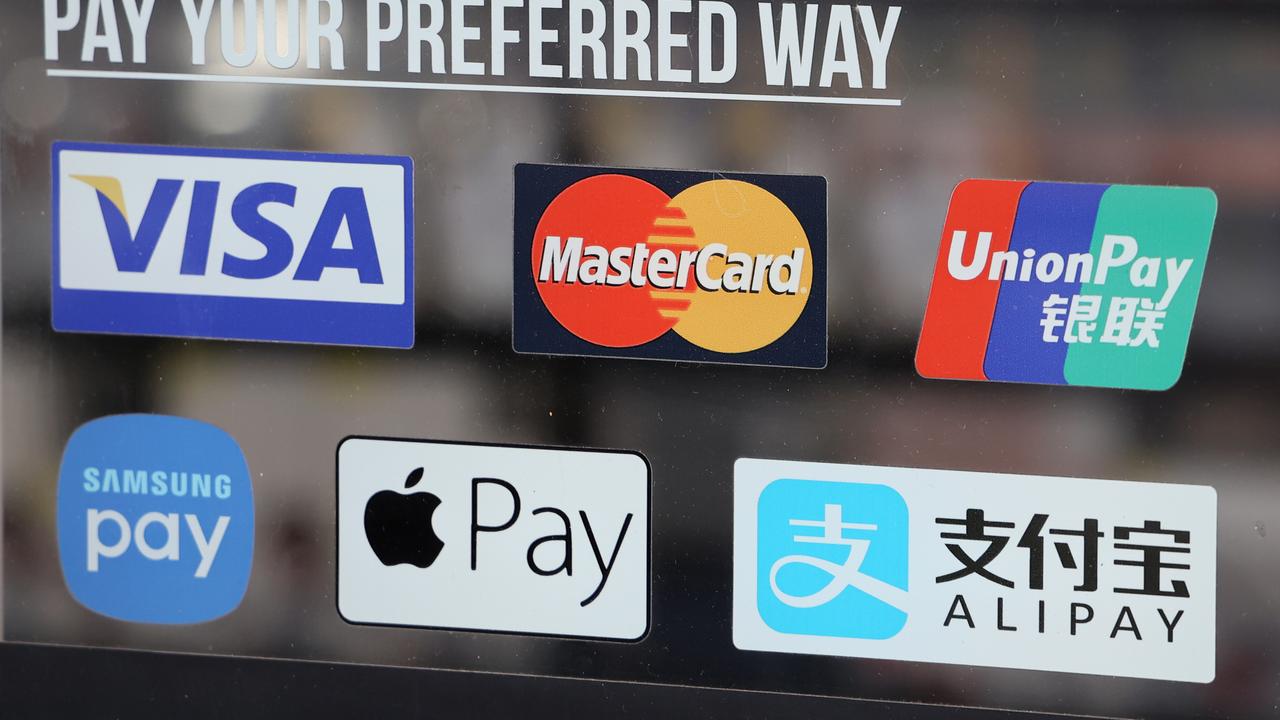Drone deliveries more likely than flying cars as Amazon trials take off
Meet the Melbourne-raised son of an aircraft mechanic who’s in charge of Amazon’s global plan for using drones to deliver its packages.
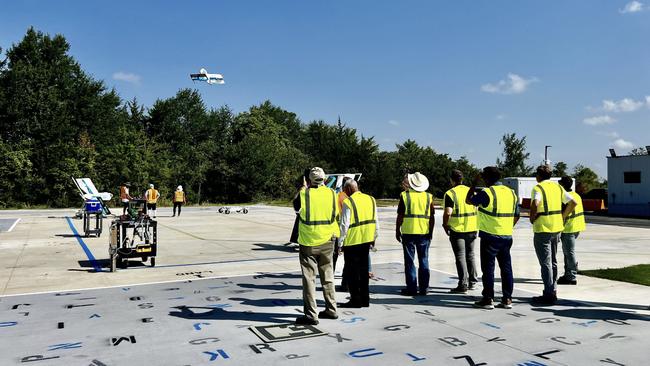
Business
Don't miss out on the headlines from Business. Followed categories will be added to My News.
Growing up in Melbourne’s north, not far from Essendon and Tullamarine airports, David Carbon remembers watching Boeing 747 jets fly overhead. His father worked for Qantas and he wanted to follow in his footsteps, working on big planes.
“The ’47 is really my favourite, just because my dad used to work at Qantas and he’d be doing D checks [major service] on ’47s – the original ’47s,” he says. “You’d go with him on the weekend where he’d be doing overtime, and you’d just sit on the A [upper] deck watching movies.”
This is an article from The List: Innovators 2024, which is announced in full on October 18.
Carbon would go on to study arts, law and politics at La Trobe University, but never forgot his working-class roots. He worked at Ford and in human resources and operational roles before moving to Boeing, where he eventually oversaw the running of its flagship 747 factory in Everett, Seattle.
“To get the opportunity to run that factory, that was my goal in life,” he says. “If I could get to do that, I could die happy. It happened a bit earlier than I thought.”
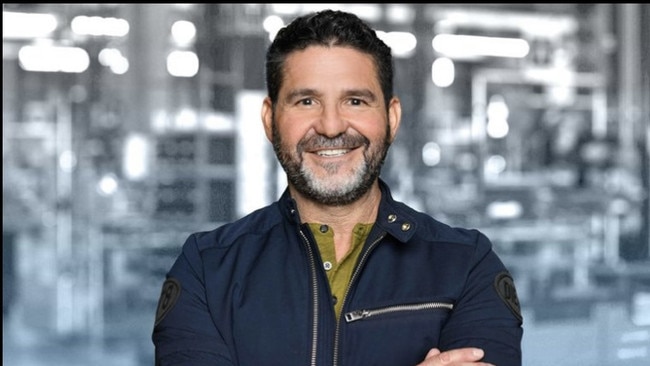
Carbon has lived in the US for the past 19 years. He left Boeing in 2019 after overseeing the development and construction of the 787 Dreamliner. He now heads Amazon’s fledgling drone program, offering serious clout to the tech titan as it takes to the skies.
While drone deliveries have been widely viewed as a novelty in e-commerce (former Australia Post chief executive Ahmed Fahour launched a trial which failed to take off – no pun intended – in 2016), Carbon says Amazon is taking the technology seriously.
The Amazon-developed MK30 drones overshadow the small consumer-grade versions Fahour launched. With a wingspan the size of a dining table, they can carry packages weighing up to 2.2kg and are designed to deliver essential items such as consumer batteries, healthcare products and medications.
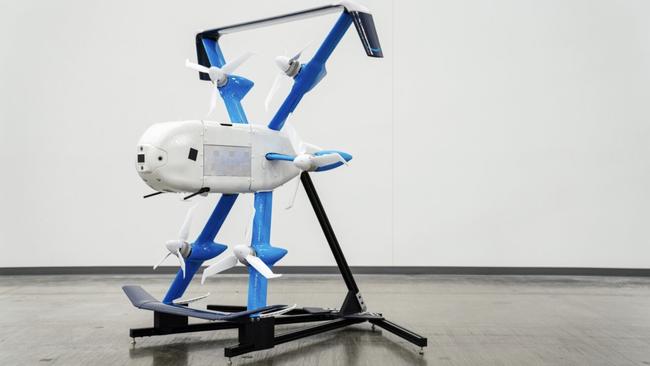
Amazon has been using drones to deliver parcels in two US cities, College Station in Texas and Lockeford in California, and has more trials scheduled for Italy and the UK.
“We made a pivot in 2019 when we decided, ‘This is real, we can do this,’” Carbon says. “We pivoted from R&D to an aerospace program that is underpinned by our systems engineering approach.
“We then went and built up our safety case to the level we thought we needed, which is a couple of magnitudes higher than general aviation and a click lower than commercial aerospace – which is magnitudes safer than driving to the store. Then we had to design that safety case.”
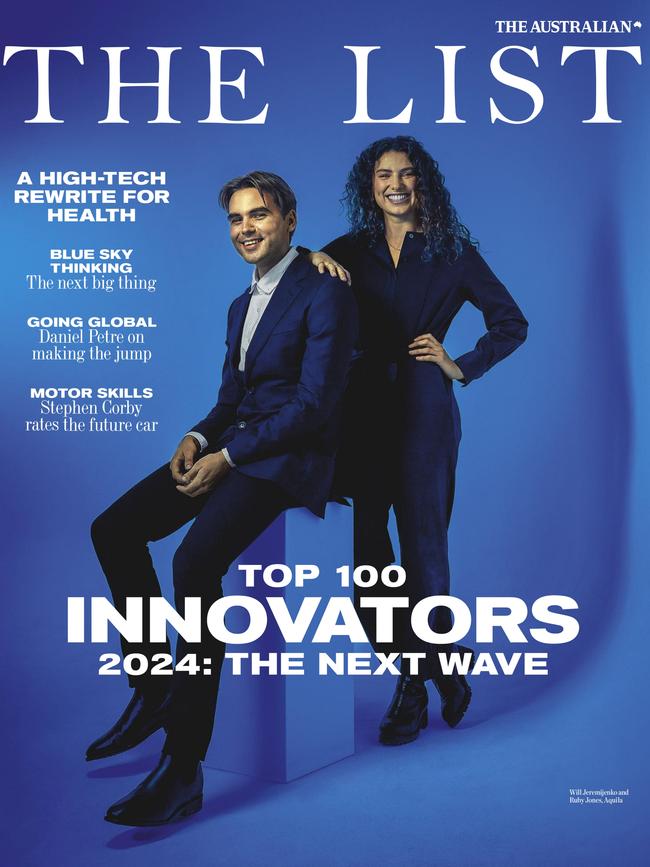
Australia has helped in that goal. While Carbon has served in senior roles at two of the biggest companies in the US, he makes regular trips home. He has ongoing relationships with University of Melbourne, where he is an advisor, and Monash University, where he holds several faculty positions. Amazon takes up to five Monash engineering students as interns every year.
“There are some brilliant kids coming through,” Carbon says. “We’ve recruited at least two of them to work full-time. They don’t get a leg up. I mean, they walk in, they impress, they get offered roles.”
What appeals most to Carbon is the “humility” of the Australian students. While Amazon selects from the best US institutions, he says the training in Australia is different: “The American institutions, the Ivy League schools, are brilliant. They’re unbelievable.
“But what I’ve noticed is – and I’ve got four kids who were raised in the US – from my perspective they’re trained on not just the academic but the social aspects of work. So you have to be able to do a presentation, talk to a large group, you have to be able to answer the questions. It’s ingrained from year one. I couldn’t believe my daughter comes home at eight and she’s giving me a PowerPoint display.
“We don’t do that in Australia. That’s the difference. They [US students] are rounded and ready. But the Australian students are a raw canvas … you get to mould. There’s a humility that comes with that, which is brilliant.”
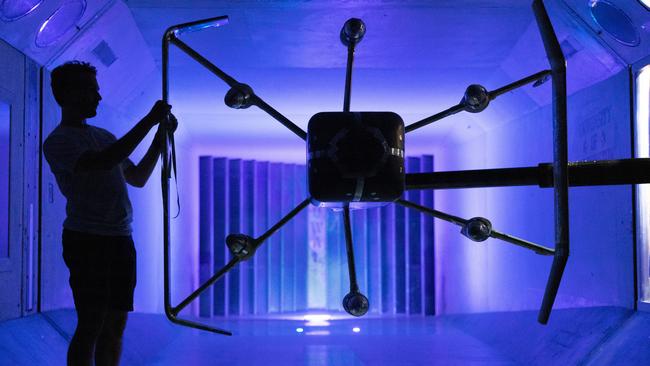
Despite the buzz that surrounds flying cars – Uber announced trials before selling its air division, while California-based Alef Aeronautics offered preorders of its vehicles, which are expected to sell for $US299,999 ($443,600) – Carbon believes drone deliveries represent the more immediate future of consumer aviation.
“The industry is going to shake itself out like salt through a salt shaker,” he says. “Not all the grains are going to come out. There’s a lot of noise, and there’s a lot of spin, and there’s a lot of stuff. The bottom line is, it’s really hard to create; a safety-critical system is not cheap.
“I’m certain there’ll be commercial drone delivery for packages, and I’m certain there will be some view of urban mobility. What urban mobility looks like, I think, is more uncertain than commercial drone delivery.
“Commercial drone delivery, for me, is a no-brainer, because years ago you didn’t have e-commerce. Now you’ve got e-commerce. If you think about the flywheel that Amazon uses: selection, speed, price … what we’re doing is overarching.”
But Amazon’s drones are unlikely to take to Australian skies soon. This is despite Wing, a subsidiary of Alphabet (Google), partnering with DoorDash to offer 250,000 Melburnians access to food drone deliveries. In a statement, Wing said: “This expansion is supported by updated regulatory approvals we’ve received from the Australian government. Our approved delivery area covering Melbourne is our largest in Australia to date, as is the pilot-to-aircraft ratio which governs our highly automated operations.”
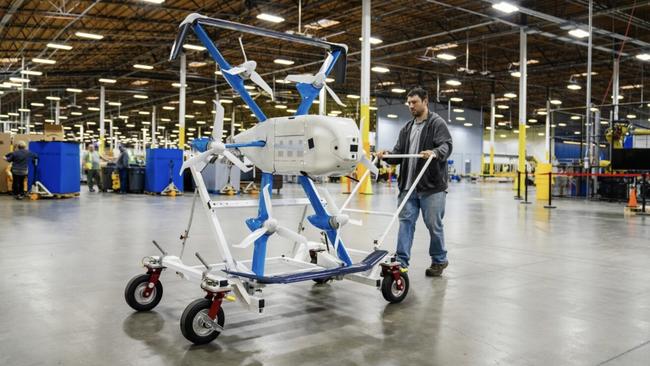
Amazon launched its latest MK30 drone in 2022. It takes off and lands like a helicopter, flies like a plane using wings, and is quieter than its predecessor.
“From an Amazon perspective, it’s difficult to answer,” says Carbon when asked when drones will launch here. “We’ve designed a drone for a global marketplace, so we have picked the highest standard available and designed to that.
“Today we are three-quarters of the way through our certification campaign for the MK30. So we’re not far away from hitting it in the US, and we will expand faster next year in the US than we previously planned.”
Carbon would dearly love to see Amazon complete an Australian drone trial in time for his 96-year-old dad, the man who inspired his career, to see the technology in action.
“The bottom line is, before I’m done and dusted, I would like to see it in Australia,” he says.
Originally published as Drone deliveries more likely than flying cars as Amazon trials take off


